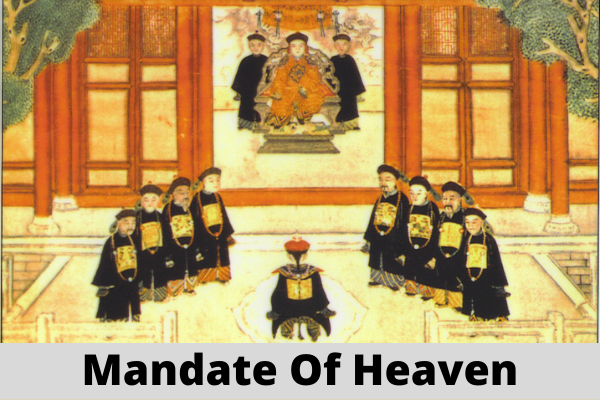The mandate of Heaven is a defunct term in modern Chinese history. It survives, however, as a concept in the religions of China. Some people believe a new Mandate of Heaven will be granted to the next Emperor, who will rule China from 2012 to 2049.
Construction Of Mandate Of Heaven
The mandate of Heaven in traditional Chinese culture is a political doctrine developed during the Zhou dynasty stating that the ruler of a country should rule morally with proper governmental administration or lose the “Mandate of Heaven.”
Although the concept was not fully developed until later dynasties, it can be seen in earlier classics such as Great Learning and the Mozi.
Also read: The 100 Season 8: Release Date And All Other Latest Updates
In traditional Chinese culture, Heaven is believed to be ruled by a Supreme Being with a bureaucracy consisting of celestial spirits and the Yellow Emperor.
In the classical view, Heaven was not a single entity but represented all-natural forces from mortals to large animals. Heaven’s power is considered the natural principle that shapes all of nature and thus gives order and purpose to everything. The White Emperor was most often viewed as a symbol of good government.
In contrast, the Mandate of Heaven justified rebellion against an unjust, tyrannical, or incompetent ruler.
Rebellion, a term coined by Sir Edward Creasy in 1851, is a rebellion of a nation’s people against the ruling power or head of state.
The term can be found in Creasy’s classic study History of the Ottoman Turks: from the beginning of their empire to its overthrow by the present-day Turks. In this volume, Sir Edward lists examples from England, Russia, Hungary, and France.
Mandate Of Heaven Concept
The Emperor is responsible for the safety of the empire. If there are calamities, it is interpreted as a sign that he has lost the Mandate of Heaven.
It can be internal or external problems in China’s territory, which will eventually affect China. It can also take place in other countries, in which case it can be referred to as foreign rebellion.
Heaven’s command can also be interpreted as rebellion or a revolt against the ruler of China. It is said to have been caused by the unworthiness of the ruler.
Must check:
- Bizarre Own-Goal Protects Atletico From Spanish League Knockout! Detailed Report
- How To Update The Graphics Driver On Windows! Detailed Report!
There are several causes for this, but it leaves China unstable until the problem is solved. The mandate must be taken back before the nation can prosper again.
The concept of “Mandate” has affected China’s history in many ways. Under traditional Chinese culture, the Emperor’s authority came from Heaven.
It was believed that when the Emperor ceased to rule by Heaven’s will, Heaven would withdraw its mandate to lead, and a new ruler would be chosen.
This situation may have been responsible for promoting several anti-Qing officials who were against the Qing Dynasty, such as Deng Tingzhen and Liu Yongfu. After they rebelled, many people followed them in their revolt since it was viewed as a call for change.
Stay tuned with us for more stuff like this!

